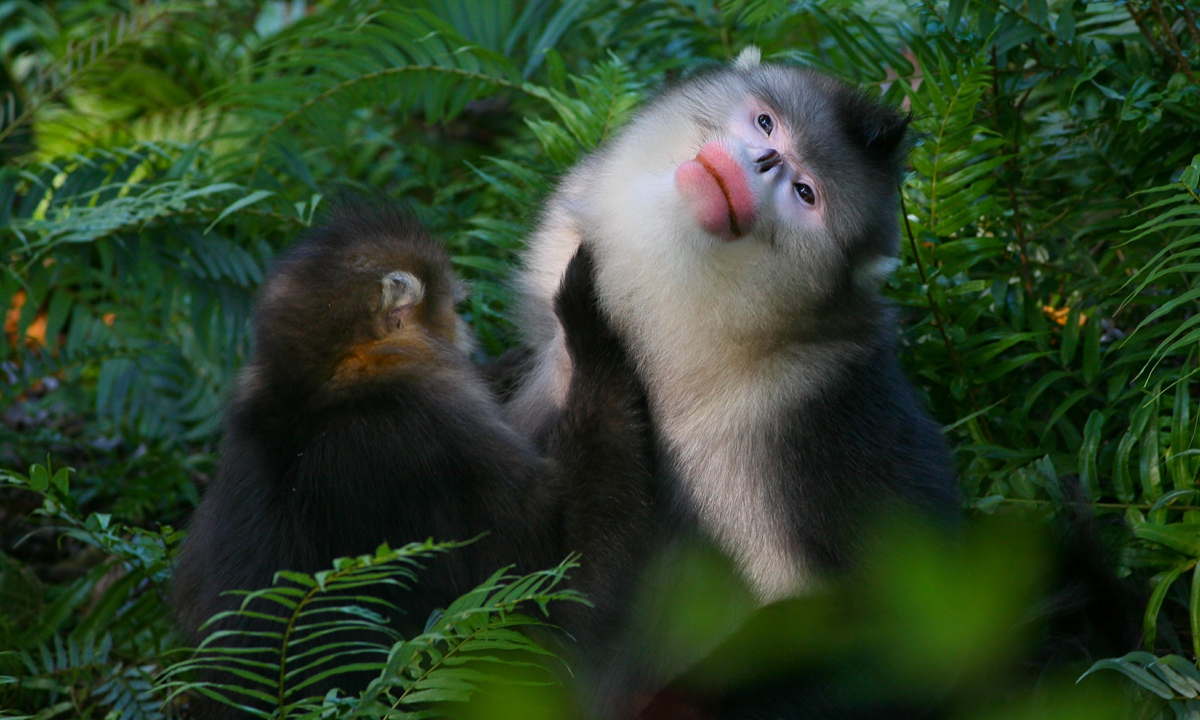
The black snub-nosed monkey, known as the Yunnan snub-nosed monkey, lives in a narrow corridor area stretching from Mangkang county in Southwest China's Tibet Autonomous Region to Yunlong County, Southwest China's Yunnan. Photo: Courtesy of Peng Jiansheng
The black snub-nosed monkey, known as the Yunnan snub-nosed monkey, is a creature that lives in a narrow corridor area stretching from Mangkang county in Southwest China's Tibet Autonomous Region to Yunlong County, Southwest China's Yunnan. It has a distinctive upturned nose, a pair of big eyes, black fur and pink lips. It is in the list of national first-level protected wild animals, and it is hard to spot given that its habitat is lush valleys at a height of 3,000 meters.
Zhong Tai, who has just retired from his position as deputy director at the management and protection bureau of Baima Snow Mountain National Nature Reserve in Yunnan, is one of people who knows this medium-sized primate species the most. Zhong came to the area when he was 17, and launched his 38-year-long career to work with wildlife.
"He is never an office person. He would head into the mountains when he could," Long Xinhua, chief of the resource protection section at the bureau, told People's Daily when talking about Zhong who, along with other research fellows, has traveled extensively through the 20,000 square kilometers of forest in northwestern Yunnan, partly to calculate the number of the species.
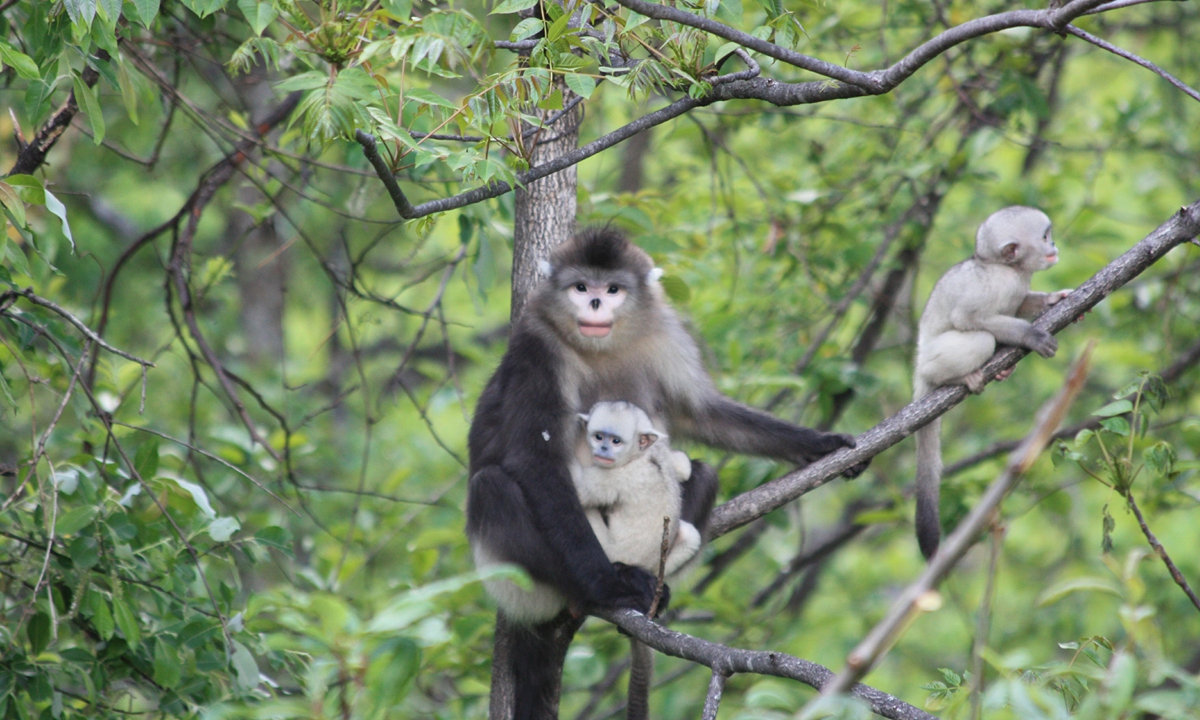
The black snub-nosed monkey, known as the Yunnan snub-nosed monkey, lives in a narrow corridor area stretching from Mangkang county in Southwest China's Tibet Autonomous Region to Yunlong County, Southwest China's Yunnan. Photo: Courtesy of He Xinming
Find the monkeys
In 1983, Baima Snow Mountain National Nature Reserve was established with a mission to protect its vast alpine coniferous forest, and of course the black snub-nosed monkeys who take the mountains as their main habitat. Zhong was in middle school at the time.
In that period, the black snub-nosed monkeys were too rare to be spotted for research or protection. To find out the number of the species, the reserve formed a group of ten, along with an expert team from the Kunming Institute of Zoology affiliated with the Chinese Academy of Science, to conduct field research.
Roaming in the complicated terrain was obviously not easy, as a retired employee recalled for the report about one of his career experiences. He accidentally lost bags full of food, water, and a tent, and as a result, "we were suffering from a severe water shortage."
Survival in the wild was a necessary skill for them, as they needed to trek in the mountains over 4,000 meters for 10 days at a time carrying many survival items. Breathing also became tricky at the high altitude.
In 1985, 19-year-old Zhong spotted a wild black snub-nosed monkey for the first time in the area with the help of a local hunter. He continued to track it for five days and nights, and was able to compile a list of living habits of the species based on his observation. He later published a paper on the behavior and habits of the Yunnan snub-nosed monkeys.
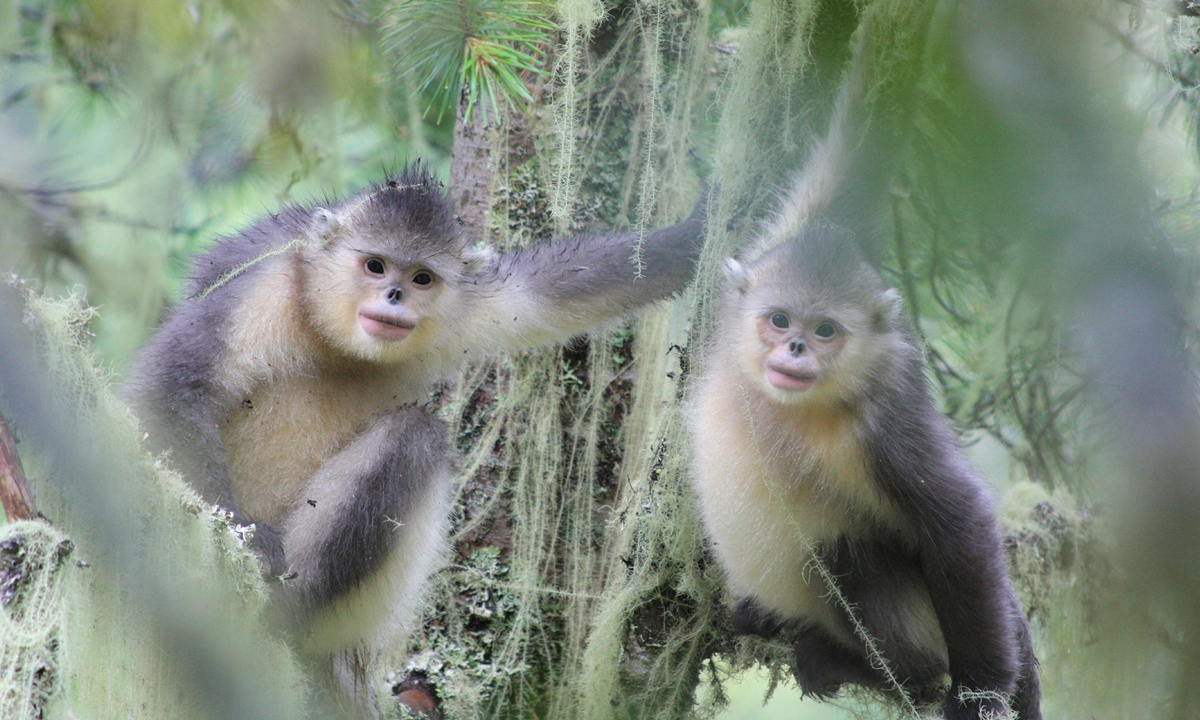
The black snub-nosed monkey, known as the Yunnan snub-nosed monkey, lives in a narrow corridor area stretching from Mangkang county in Southwest China's Tibet Autonomous Region to Yunlong County, Southwest China's Yunnan. Photo: Courtesy of He Xinming
Road to protection
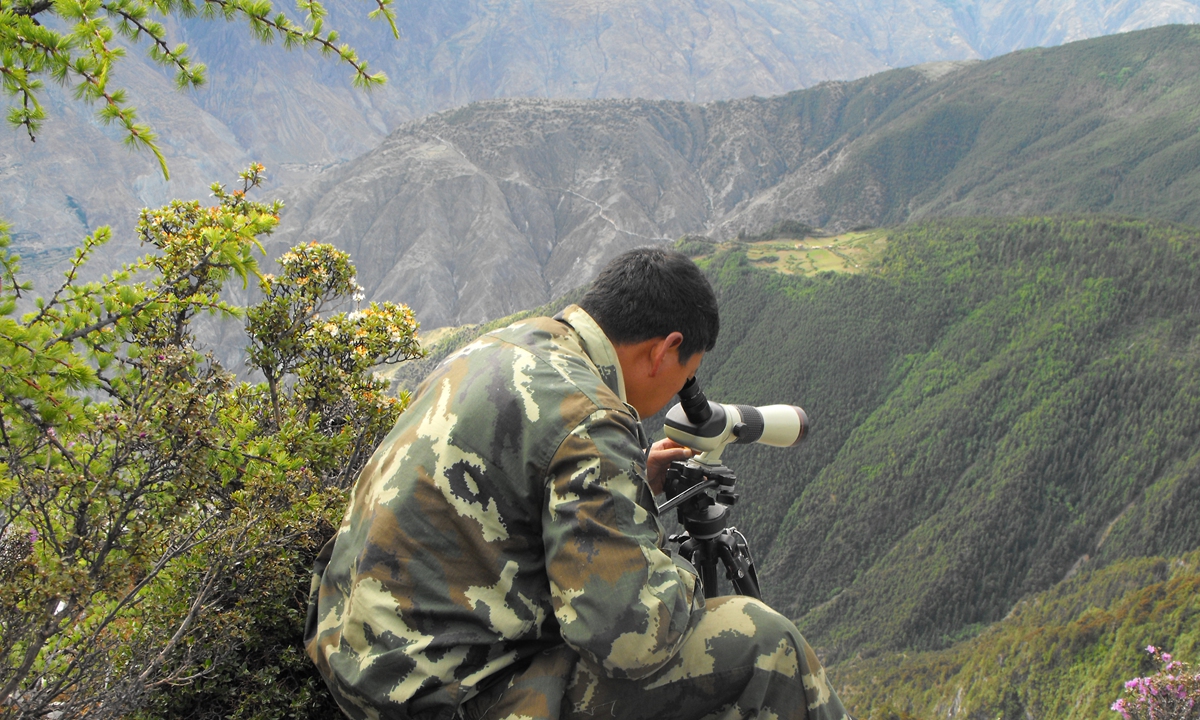
Zhong Tai, former deputy director at the management and protection bureau of Baima Snow Mountain National Nature Reserve in Yunnan, is communicating with collagues during a patrol in the wild. Photo: Courtesy of Baima Snow Mountain National Nature Reserve
In November 1991, the 25-year-old Zhong and the scholars carried out a three-year field study of the group at the observation camp established on a mountain at an altitude of 4,300 meters.
By the year of 1996, the species was believed to number around 1,000 to 1,500. This has increased to over 3,300, based on the latest report released by the Yunnan Forestry and Grassland Bureau in 2021, with around 60 percent of the species living inside the reserve.
There were two key problems the monkeys were facing, said Mao Wei, deputy director at the management and protection bureau. One was poaching, and the other was the constant destruction of the habitat and damage to the environment in Baima Snow Mountain by the local villagers.
There were over 70,000 villagers, who relied a great deal on the local natural recourses, especially wood for fire and construction purposes.
"The village used to cut the wood to sell it. Even after the government banned forest logging there were still villagers smuggling out logs on tractors to sell to the nearby factories," a 53-year-old villager recalled. There was little arable land in the mountainous areas, and it was difficult to draw water to the farmland.
In order to solve the problem, Zhong helped to apply for the funds to build terraced fields and diversion irrigation, so that the villagers didn't need to sell wood.
The 38-year long research and protection career has made Zhong an expert on the black snub-nosed monkey, as well as a forestry engineer. He has published over 10 academic essays and finished his college degree at Southwest Forestry College in 2000.
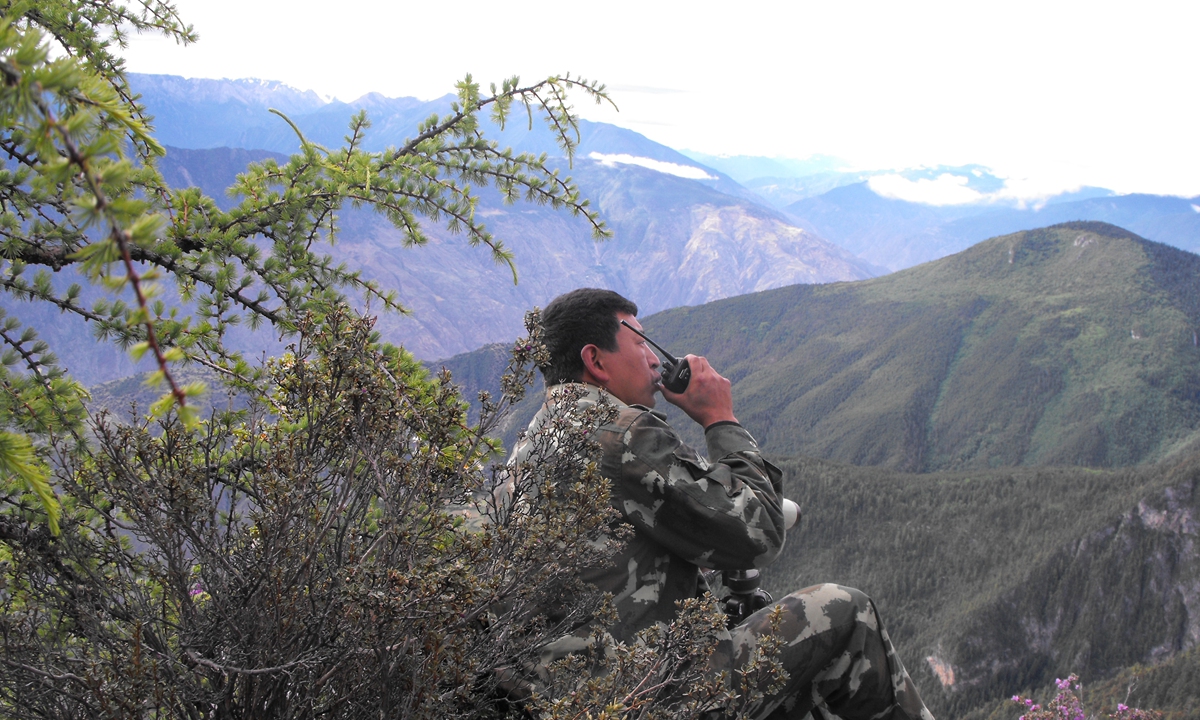
Zhong Tai, former deputy director at the management and protection bureau of Baima Snow Mountain National Nature Reserve in Yunnan, is communicating with colleagues during a patrol in the wild. Photo: Courtesy of Baima Snow Mountain National Nature Reserve


